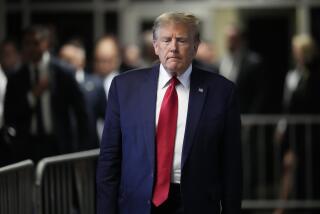Despite local concern, judge orders Newtown 911 tapes released
A Connecticut judge Tuesday ordered the release of recordings of 911 calls made the day of the Sandy Hook Elementary School massacre in Newtown, Conn., rejecting a state prosecutor’s arguments that they should remain sealed to protect witnesses and the victims’ families.
Judge Eliot Prescott made his decision after listening to the tapes himself, and he gave the state’s attorney for the Danbury region, Stephen Sedensky III, until Dec. 4 to comply. The ruling came a day after the state released a 48-page summary of the 11-month police investigation into Adam Lanza’s rampage, which killed 20 first-graders and six school employees.
Lanza, 20, also killed his mother, Nancy Lanza, before shooting himself to death on Dec. 14, 2012.
PHOTOS: Newtown school shooting
Sedensky said he was reviewing Prescott’s decision and then would determine his next step.
In his 33-page decision, Prescott said the public had “weighty interest” in hearing the recordings, to gauge law enforcement’s response to the shootings and to determine what, if anything, could be done to improve responses in future emergencies.
A public airing of the recordings could also “vindicate and support the professionalism and bravery of the first responders” to arrive at Sandy Hook, Prescott said. He said there was “no dispute” that the information in the calls are public record and subject to the state’s Freedom of Information Act, or FOIA.
“The FOIA requires the disclosure of any public record unless the record is exempt from disclosure,” Prescott wrote, going on to reject Sedensky’s argument that several exemptions applied to the 911 calls. Sedensky, for example, had said the records should be sealed because Lanza’s crime amounted to child abuse, which would make the information exempt from the FOIA law.
WHO THEY WERE: Newtown shooting victims
But Prescott, who listened to the tapes in private on Monday, said that while “callers describe, in a harrowing and disturbing manner, an emergent criminal event ... the callers do not describe any particular acts of child abuse.”
“Indeed, the only injury that is described relates to an educator who had been shot in the foot,” Prescott added.
Prescott’s ruling appears to end a battle that began in February, when Newtown police refused a request by the Associated Press for the 911 records. The police were acting at Sedensky’s behest.
AP appealed to the state’s Freedom of Information Commission, which ordered the tapes released.
Sedensky appealed. “This is a case about crime victims and witnesses who shouldn’t have to worry that their calls for help, at their most vulnerable moments, will become fodder for the evening news,” he argued in his appeal.
On Tuesday, the Hartford Courant newspaper published an editorial criticizing the withholding of the 911 call records and the fact that it took 11 months for Sedensky to release his summary of the police investigation.
“How can the public judge the performance of its law enforcement officers without knowing how they responded?” it said.
Many of the Newtown victims’ families, however, oppose the release of official information surrounding the case, including the 911 calls, saying that it will force them to relive the tragedy.
[Updated 4:15 p.m. PST, Nov. 26: The relatives of one victim, first-grader teacher Victoria Soto, reacted bitterly to Prescott’s decision in a statement posted on social media and directed at the judge. “We feel like our privacy has been invaded again,” the statement said in part.
“We can only hope something of this magnitude never happens to you. Although I’m sure you are getting a slight glimpse into our world now, as you have been thrust in the spotlight. But your spotlight will fade, ours, unfortunately, will remain, and people who do not need to hear the audio from the day Vicki died will get their sick obsession fulfilled, all due to your decision.”]
Prescott acknowledged the victims’ pain in his ruling.
“The court recognizes and is deeply sensitive to the fact that the families and friends of those who died in this tragedy ... may desire that the 911 audio recordings never be released. The public airing by the media of some or all of the recordings that will undoubtedly follow their release will likely be a searing reminder of the horror and pain of that awful day,” he wrote.
But he said this must be tempered by the law, which he said clearly did not defend keeping the information sealed. Eventually, he said, the material was bound to be made public.
“The question is not if, but when,” Prescott said. “Delaying the release of the audio recordings, particularly where the legal justification to keep them confident is lacking, only serves to fuel speculation about and undermine confidence in our law enforcement officials.”
ALSO:
Nor’easter threatens Thanksgiving travel, Macy’s parade
Philadelphia contractor charged with murder in building collapse
Sandy Hook report: Lanza responsible for rampage, motive remains mystery
More to Read
Sign up for Essential California
The most important California stories and recommendations in your inbox every morning.
You may occasionally receive promotional content from the Los Angeles Times.











